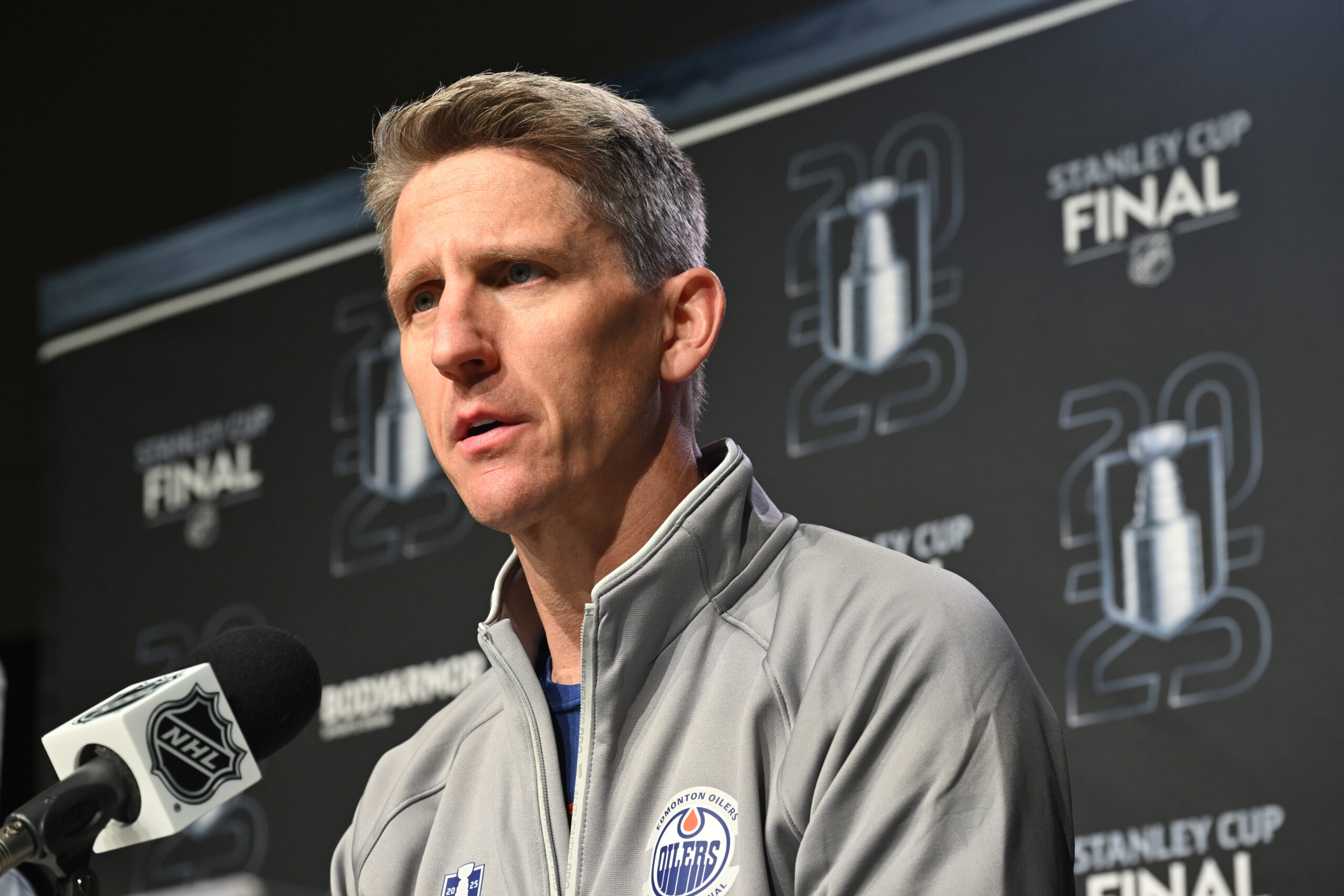

In the wake of a lopsided defeat, it's tempting to look for scapegoats. After a significant loss, particularly in a high-stakes environment like the Stanley Cup Final, emotions run high, and the urge to point fingers is often overwhelming. However, for the Edmonton Oilers to publicly criticize the referees after their recent loss is a misstep that could have long-term repercussions.
While frustration is understandable, especially when penalties seem uneven or calls appear inconsistent, directly attacking the integrity or competence of the officials is rarely a productive strategy. In Game 3 against the Florida Panthers, the Oilers found themselves on the wrong end of a significant penalty disparity, racking up 85 penalty minutes compared to the Panthers' 55. This led to power-play opportunities that Florida capitalized on, further widening the score gap. Oilers forward Evander Kane voiced his frustration, suggesting a disproportionate focus on Edmonton by the referees. Coach Kris Knoblauch also took a subtle jab, sarcastically praising the officials while referencing a missed call in Game 2.
However, such criticism, whether direct or veiled, can backfire. Referees, like players, are human and subject to errors. Publicly questioning their integrity can create an adversarial relationship, potentially leading to subconscious biases in future games. While it's impossible to prove intentional bias, the perception of unfair treatment can be damaging to team morale and performance. It is also worth noting that the NHL has a system in place for addressing officiating concerns through proper channels. Teams can submit video evidence and seek clarification on specific calls without resorting to public accusations.
Focusing on what they can control is a much better use of the Oilers' time and energy. Discipline is paramount. The Oilers need to address the root causes of their penalties. Were they the result of undisciplined play, frustration-based reactions, or simply unlucky breaks? Analyzing the penalties and implementing strategies to minimize infractions is crucial. This includes better puck management, smarter defensive plays, and maintaining composure even when facing adversity. The Oilers also need to focus on their special teams' performance. While their power play has been a weapon in the past, it needs to be more consistent. Similarly, their penalty kill needs to be more effective in shutting down opponents' power plays, regardless of the number of opportunities given.
Acknowledging the team's own shortcomings demonstrates accountability and a commitment to improvement. Connor McDavid, despite the loss, recognized the undisciplined penalties contributed to their unraveling. This is the kind of leadership that fosters a positive team environment and encourages players to take ownership of their performance. While it's tempting to blame external factors, the Oilers' success hinges on their ability to control their emotions, refine their game, and execute their strategies effectively. By focusing inward, the Oilers can regain their focus, improve their performance, and ultimately achieve their goals.